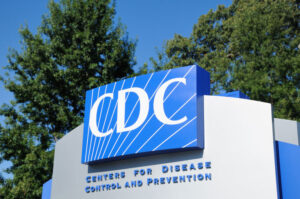Written by Scott Wilson

If organizational leadership weren’t already on the radar in the public health world, the COVID-19 pandemic certainly would have put it there. The difficulties of marshaling data and taking action in the face of uncertainty hit at every level of the American and global public health services. From individual city and county officials all the way up to heavy hitters at the CDC, issues of communication, innovation, and motivation became critical.
Organizational leadership is such an effective tool in the field that even standard public health degrees today often include OL coursework as part of their required classes.
While some public health organizations came through the pandemic with flying colors, others struggled with the vital issues of communication, motivation, and inspiration.
These are all areas that organizational leadership programs focus on. They give graduates the understanding of social and behavioral psychology, communication theory, and conflict management they need to understand how groups of citizens come together or fall apart. And they offer training in the tools needed to make sure that policy, outreach, and communication deliver the most positive outcomes.
How the Legends of Public Health Leadership Saved Lives and Changed the Way Public Health Gets Done
 Cholera outbreaks in 19th Century England were depressingly regular, but the one that hit London’s Soho in late August of 1854 was downright horrific. Over three days, 127 people died; the total was 500 in early September, with more than 1 in 10 of those afflicted dying.
Cholera outbreaks in 19th Century England were depressingly regular, but the one that hit London’s Soho in late August of 1854 was downright horrific. Over three days, 127 people died; the total was 500 in early September, with more than 1 in 10 of those afflicted dying.
Amid this outbreak, a man by the name of Doctor John Snow forged a place in public health history and epidemiological research for all time. With groundbreaking statistical analysis, Snow identified the disease as germ-based and the source as the Broad Street Pump where residents sourced their drinking water.
If that sounds like amazing public health leadership, it leaves out an important figure. While Snow brought mathematical and medical analysis to the party, much of the legwork of tracking cases and taking vital patient histories fell to the Reverend Henry Whitehead.
Whitehead had the strong interpersonal relationships, the calm demeanor, and the moral authority needed to identify the index case of the outbreak and pinpoint the cesspool that was contaminating the pump water source.
Whitehead’s role in the Broad Street outbreak is textbook organizational leadership in an era before OL had even been named. As a man of the cloth, it was natural for him to inspire and motivate people. And his deep knowledge and understanding of the community helped him in doing so, where outsiders like Snow may have failed alone.
Truly inspirational public health leaders remain irreplaceable even today, and for the same reasons. When you look to the highest ranks of the CDC and other public health agencies, you’ll see many leaders that hold those positions for decades. Elected officials come and go, but the experts responsible for the safety of the nation continue to exercise leadership under administrations of every stripe.
By putting together public health studies with training in organizational leadership, you’re combining the best parts of what Henry Whitehead and John Snow had to offer.
Matching Your Education With the Unique Demands of Organizational Leadership in the Public Health Field
 Public health is a very technical field that requires an intensive and specialized education. Many public health officials are doctors or nurses, who have gone through the hard, focused college coursework necessary to earn licenses in those fields. Other public health officers come to the field through training in biology or public health degree programs that lay the groundwork you need to understand complex health and public safety issues.
Public health is a very technical field that requires an intensive and specialized education. Many public health officials are doctors or nurses, who have gone through the hard, focused college coursework necessary to earn licenses in those fields. Other public health officers come to the field through training in biology or public health degree programs that lay the groundwork you need to understand complex health and public safety issues.
All the coursework in biology, epidemiology, behavioral health, environmental safety, and policy and planning doesn’t leave a lot of room for leadership-oriented studies.
Until a crisis comes, many public health jobs aren’t thought of in terms of leadership.
But leadership is a constant requirement in keeping communities safe. Bringing organizational leadership studies into your public health studies is the best way to meet that need.
Combining Advanced Studies in Public Health and Organizational Leadership
The path to a career in public health almost always means that you’ll be earning a bachelor’s degree in a closely related field. And that means that when the time comes to polish up your organizational leadership chops, you’ll almost certainly be doing it at the master’s level or above.
MPH and Other Master’s Degrees in Public Health and Organizational Leadership
MSOL/MAOL (Master of Science in Organizational Leadership/Master of Arts in Organizational Leadership) programs are one to two year degrees that zoom in on the arts of developing esprit d’corps, effective group strategy, and supporting common goals. The applications in public health are clear. You will find Master of Science/Master of Arts in Organizational Leadership with Public Health Specialization tracks available at many universities.
There are also many MPH degrees with leadership specializations. You will find Master of Public Health degrees with relevant concentrations like:
- Organizational Leadership
- Leadership
- Policy and Leadership
- Leadership and Public Health Practice
- Management and Leadership
Any of these options will give you the high-end technical training that public health officials need, but also develop a better understanding of leadership theory and practice as it is applied in the field.
You have to be careful in evaluating MPH leadership concentrations. In many cases, leadership in the public health context is still seen primarily as developing expertise in administration or in policy development. While those are important pieces of managing the public health environment, they differ substantially from the evocative, inspirational, motivational aspects of organizational leadership.
Dual Degrees in Public Health and Organizational Leadership Double Down on Your Expertise
Another way to get both kinds of leadership training is to opt instead for a dual-degree approach. This involves pursuing both an MPH and an MSOL/MAOL, or in some cases an MSMOB (Master of Science in Management and Organizational Behavior) at the same time. You get all the advanced coursework for both fields, without having to prioritize one over the other.
Earning dual degrees is obviously a much more challenging path than picking a concentration or just focusing on one or the other. But dual degree graduates have a formidable amount of expertise that puts them at the top of the list when public health agencies go looking for leaders who can tackle the next crisis on the horizon.
Doctorates in Public Health and Organizational Leadership Polish Your Skills at the Highest Level
 As with the master’s level, it’s possible to find Doctor of Public Health programs that offer specializations in areas like organizational or global health leadership. These deliver the highest level of training in both public health matters and OL concepts, developing new thinking and original ideas for the community.
As with the master’s level, it’s possible to find Doctor of Public Health programs that offer specializations in areas like organizational or global health leadership. These deliver the highest level of training in both public health matters and OL concepts, developing new thinking and original ideas for the community.
At the PhD level, almost every degree becomes specialized by nature. You have a tremendous flexibility in choosing your research subjects, developing your own theories, and pursuing the knowledge you need to confirm them.
Organizational Leadership Certificate Programs Offer a Fast Way To Fill in the Gaps
Plenty of people get far into their public health career without specifically studying organizational leadership. If you already have an MPH or DrPH behind you, don’t despair; post-graduate certificates in Organizational Leadership offer a fast, inexpensive path to polishing your leadership skills.
These programs are designed to build off your existing domain expertise by giving you high-level, advanced instruction devoted entirely to organizational leadership principles. You don’t need to waste time going over the basic public health skills you already hold. A fast-paced concentration to develop inspirational and visionary leadership is the entire package.
An Organizational Leadership Curriculum Complements Public Health Management Expertise
 Studies in an organizational leadership program will open up a whole new world for public health professionals. While you’ve been busy building a career around hard sciences like biology and epidemiology, and studying the details of public health policy and the healthcare industry, OL brings a very human touch to health and welfare concerns.
Studies in an organizational leadership program will open up a whole new world for public health professionals. While you’ve been busy building a career around hard sciences like biology and epidemiology, and studying the details of public health policy and the healthcare industry, OL brings a very human touch to health and welfare concerns.
You get that approach through coursework in subjects like:
Ethics and Leadership
Gaining the respect and trust of your workforce or the public at large requires strict compliance with ethical guidelines. These classes will not only help you establish what ethics mean and what the rules are, but how to build decision-making and other processes around a solid ethical framework.
Teambuilding and Development
As a public health official, your team can be very large and diverse. Bringing the different beliefs and cultures that exist between the worlds of public governance, healthcare, and academia is a true challenge. Classes in how to foster connections, build consensus, and lead dynamically help you master that critical function.
Change and Conflict Management
Public health policy is almost always a series of trade-offs and compromises. It’s a field where you must react quickly to new threats, and where you will always experience resistance for new measures. So the OL coursework that helps you understand the roots of adaptation and the techniques of managing conflict can be enormously helpful in developing effective strategies in public health.
Organizational Analysis
Evaluating what you have to work with and how to approach leadership is a critical piece of OL. Nothing is top-down; that’s a particularly effective way to think about public health as well, where persuasion and presentation to the public is more critical than just being scientifically correct. So the skills and techniques offered by OL coursework in organizational analysis have enormous value to public health pros.
Cultural and Sociological Impacts on Organizations
Every community and organization has its own unique culture, shaped by a wide range of historical and social factors. OL trains you how to break those factors down and assess the impacts on groups, as well as how to strategize your leadership methods and communications to take those into account.
It’s common to spend some time on the practical side of the discipline through internship or practicum placements, too. And some programs will even send you overseas, giving you a new perspective on diversity and new ideas on leadership approaches.
A Final Capstone Project or Paper Will Bring Together Your Studies in a Unique Expression of Your Accomplishments
 Because you’re likely to be earning an advanced degree in organizational leadership, you’re also going to have to produce one of the most fundamental products of a master’s or doctoral degree: a unique and original final project or paper demonstrating your achievements.
Because you’re likely to be earning an advanced degree in organizational leadership, you’re also going to have to produce one of the most fundamental products of a master’s or doctoral degree: a unique and original final project or paper demonstrating your achievements.
Traditionally, this has taken the form of a master’s thesis or a doctoral dissertation. Each represents an extensively researched, well-reasoned, clearly articulated idea that you have developed personally and supported with data and logic.
Sometimes hundreds of pages long, a thesis or dissertation can account for as much as half your total time in an advanced degree program.
In many organizational leadership programs, and often in public health degrees with OL concentrations, another option today is the capstone project. These are more practical, actionable projects than the theory-heavy final paper. While they involve some writing and research, they are aimed at bringing your newly-acquired knowledge to bear on practical real-world issues in the field.
Whatever completion project you face, it will be an important addition to your resume. The subject matter and the quality of the work can dictate the path of your career going forward.
Finding the Right School for Building Both Public Health and Organizational Leadership Expertise
 One of the big choices facing public health professionals angling for organizational leadership degrees is whether to pursue the training from a health sciences school or from a business school.
One of the big choices facing public health professionals angling for organizational leadership degrees is whether to pursue the training from a health sciences school or from a business school.
OL degrees are by far most commonly offered by business schools. There’s nothing wrong with the kind of essential, general studies of leadership and strategic skills that come with those programs. But the context of organizational leadership in the world of public health is definitely different than at private corporations.
Studying at a school of public health takes care of the translation from the generic principles to specific, actionable leadership actions in community health and welfare.
Beyond those essential choices, though, how do you pick a specific school to get the perfect combination of organizational leadership and public health education?
Evaluating your options comes down to the basics. You’ll want to find a university where:
- Top-notch faculty have strong academic and professional backgrounds in the field, with a solid reputation and research publication history
- Strong ties to the public health field are maintained through research and study and job placements
- Libraries and research facilities have all the tools and references you need for cutting-edge study
- Academic advisors understand your needs and the public health field and can point you in the right direction for both coursework and field experience
You’ll also want to look at any specialty accreditation held by the department offering the degree. Both business and public health have widely-recognized accreditation bodies who specifically evaluate programs for their quality and consistency with the expectations of the profession. Depending on which kind of school you are looking at, you will want to check to see if they hold accreditation from one of these organizations:
- Schools of Public Health
- Council on Education for Public Health (CEPH)
- Business Schools
- Association to Advance Collegiate Schools of Business (AACSB)
- Accreditation Council for Business Schools and Programs (ACBSP)
- International Accreditation Council for Business Education (IACBE)
Degree Costs Represent a Deep Investment in Leadership Skills
 A master’s or doctoral degree represent a lot of knowledge and skill acquisition. But they are also a substantial investment in time, energy, and money.
A master’s or doctoral degree represent a lot of knowledge and skill acquisition. But they are also a substantial investment in time, energy, and money.
According to the National Center for Education Statistics, the financial piece of the puzzle for graduate programs in the United States in 2021 worked out to $12,410 per year at public schools, or $26,597 at private universities.
This is where your choice of a degree program can have real impacts. A MSOL/MAOL with a public health concentration can be completed in one to two years. An MPH with an organizational leadership concentration, on the other hand, will take between two and four years. So you can expect roughly double the costs in tuition and fees alone on that path.
Online Organizational Leadership Studies Fit Right in With Busy Public Health Careers
 Both public health education and organizational leadership programs have increasingly moved toward hybrid and online formats. It’s a perfect fit for the busy professional most likely to be pursuing these degrees.
Both public health education and organizational leadership programs have increasingly moved toward hybrid and online formats. It’s a perfect fit for the busy professional most likely to be pursuing these degrees.
By the time you get to the master’s or doctoral stage of your studies, you’ve probably already moved up the career ladder a bit. You’re also further along in life in general; maybe married, maybe taking care of kids.
That’s a tough lifestyle to put the brakes on to attend school in person, even part time. It’s even worse if the perfect school for you is on the other side of the country.
But online degrees let you attend from anywhere, fitting in your coursework to whatever part of the day works best for you. Streaming video lectures and lunch, filing reports and assignments at soccer practice… online degrees let you work when you can.
And with hybrid programs, you combine that flexibility with the occasional on campus meeting that connects you to professors and fellow students. It may be the best of both worlds. But either option opens up plenty of ways to get the public health leadership training you need.
High-level Jobs in Public Health Come With Leadership Training
Public health professionals typically find employment with state, local, or federal governments, or with non-profit organizations in the health and wellness space.
The Face of American Public Health Leadership
 You really can’t talk about leadership in public health in America today without one name coming to mind: Anthony Fauci.
You really can’t talk about leadership in public health in America today without one name coming to mind: Anthony Fauci.
Fauci was the face of the government through the earliest and worst stages of the COVID-19 pandemic. His authority and rigorous scientific approach flowed through clear and calm communication in both print and video. Anytime you end up being played by Brad Pitt on Saturday Night Live, it’s a sign you’ve become iconic.
But COVID-19 wasn’t Fauci’s first rodeo. He had cut his teeth in the early days of the HIV/AIDS epidemic, making critical breakthroughs in treatment and control. He’d stepped up during the swine flu and Ebola scares, offering calm guidance and advice.
By the time he retired in 2022, Fauci was the face of public health in the United States and for much of the world. He’s also a clear example of how organizational leadership skills pay dividends in public health service.
These positions can have a lot of different types of day-to-day experiences, from working in a lab environment to riding around bumpy country roads on remote reservations checking up on individuals at high-risk of disease. They have titles like:
- Health Education Specialist
- Public Health Advocate
- Epidemiologist
- Community Health Worker
- Public Health Officer
There is plenty of room for leadership in all these positions, and a better chance of advancement if you have organizational leadership skills on top of your public health chops.
Better yet, jobs in the public health field are expected to grow at a rate between a 12 percent and 26 percent between 2021 and 2031 according to the Bureau of Labor Statistics.
How Does an Organizational Leadership Degree Affect Your Public Health Salary?
 People get into public health because of what they can accomplish, not how much they can make. For most public health officials, the score is kept in lives saved, not dollars earned.
People get into public health because of what they can accomplish, not how much they can make. For most public health officials, the score is kept in lives saved, not dollars earned.
But as a field that is highly important, in high demand, and requires highly trained experts, you can expect to find generous salaries and benefits in public health roles.
BLS groups most of the job titles above into only a few standard roles for salary tracking purposes. They found the following average annual wages for various public health workers in 2021:
- Community Health Workers - $46,590
- Health Education Specialists - $60,600
- Epidemiologists - $78,830
While those are the averages, you can bet that leaders in the field make a lot more. Among epidemiologists, for example, those in the top ten percent of the profession earn more than $130,050 per year. The same slice of health education specialists made more than $102,480.
Where you work can be as important as your job title when it comes to salaries in public health. For instance, the top three industries for health education specialists show dramatically different average salaries:
- Hospitals - $76,450
- Government - $60,670
- Outpatient care centers - $54,060
And since most public health professionals do work in government or healthcare settings, the base salary doesn’t tell the whole story. Medical and pension benefits tend to be more generous in those industries than in the private sector, and job security is high.
But salary is really the last reason that most public health professionals pursue organizational leadership training. By learning how to connect to the community, to be persuasive, and to make your knowledge and ideas stick, you’re simply doing your job better. And in public health, that job is saving lives.
2021 US Bureau of Labor Statistics salary and employment figures for Epidemiologists and Health Education Specialists and Community Health Workers reflect national data, not school-specific information. Conditions in your area may vary. Data accessed December 2022.



